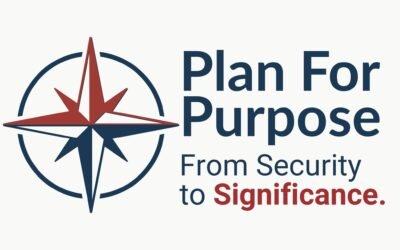Mark Twain’s quip – “Never let your schooling get in the way of your education”, carries far more weight than mere humor. It is a challenge to rethink what we often call learning. At its core, it distinguishes between schooling, the formal, institutionalized process of instruction, and education, which is broader, deeper, and lifelong. Twain’s warning suggests that while schooling has value, it must never become a substitute for true education, nor should it stifle the curiosity and initiative that drive genuine personal growth.
Schooling vs. Education
Schooling is structured: it delivers standardized curricula, evaluates through grades, and aims to produce measurable outcomes. It offers a foundation in literacy, numeracy, and critical subjects. Yet, schooling often emphasizes conformity, memorization, and obedience over independent thought. A diploma may certify years spent in classrooms, but it does not necessarily prove wisdom or adaptability.
Education, in contrast, is a lifelong process of discovery. It includes learning from books, conversations, mistakes, travel, reflection, and even failure. Education shapes not only the mind, but also character, values, and perspective. Twain reminds us that while one can graduate from school, one should never graduate from education.
The Limitations of Formal Schooling
To see Twain’s point clearly, one must admit that formal schooling can sometimes hinder education:
• Standardized testing rewards rote memory rather than critical analysis.
• Curricula can be narrow, leaving little room for exploration or creativity.
• Institutional learning may focus on producing workers rather than thinkers.
In such systems, students may complete years of schooling yet emerge unprepared to face real-world challenges. Twain’s advice is a call not to be lulled into complacency by credentials or titles.
The Role of Experience as Education
Twain himself learned more from life on the Mississippi River, travel, and observation than from classrooms. Experience remains one of the richest teachers. Work, travel, hardship, success, and even failure all educate us in ways no textbook can. These experiences cultivate practical wisdom, the ability to apply knowledge in the messy, unpredictable reality of life.
A traveler learns geography differently than a student memorizing maps. An entrepreneur learns finance differently than someone studying balance sheets in theory. Such lessons make education tangible and enduring.
Character and Moral Development
Education is not only intellectual. It involves forming character, ethics, and emotional intelligence. Self-education often addresses the areas schooling neglects: resilience, empathy, integrity, and the courage to stand apart from the crowd. A person truly educated is not just well-informed, but also well-formed.
The Democratization of Knowledge
In Twain’s era, books and travel were the main avenues of self-education. Today, the tools are limitless: online courses, podcasts, digital libraries, and global communities put the world’s knowledge within reach of anyone with curiosity. This modern democratization of learning makes Twain’s caution more relevant than ever. We now have fewer excuses to remain limited to our “schooling.”
The Balance Between Schooling and Self-Education
Twain’s point should not be misunderstood as dismissing formal schooling. Schooling provides structure, discipline, and foundational skills. But it must be balanced by self-education, the personal pursuit of knowledge tailored to one’s passions, needs, and goals. When both paths are combined, schooling builds the framework while self-education fills it with substance and individuality.
Conclusion
Mark Twain’s wisdom is timeless: true education is not handed down in classrooms; it is seized by the learner. Self-education ensures that curiosity never fades, that learning does not end with graduation, and that personal development continues throughout life. Schooling may grant certificates, but education grants perspective, resilience, and wisdom.
Twain’s challenge is as urgent today as it was in his time: Never let your schooling limit your education, for the world is the true classroom, and life itself the ultimate teacher.
How Plan for Purpose Can Help You Grow Beyond Schooling
At Plan for Purpose, we believe true education extends into every stage of life, especially when it comes to building financial security, designing a fulfilling retirement, and leaving a meaningful legacy. Our services are rooted in values-based financial planning, helping you align money with purpose.
We guide individuals and families through:
• Life Insurance Advisory Sessions – making protection work for you, not just your heirs.
• Purpose-Driven Retirement Design – creating a retirement filled with meaning, not just money.
• Legacy and Mentorship Development – ensuring your wisdom, not just your wealth, is passed on.
• Philanthropy Planning – using life insurance and financial tools to give back with impact.
Just as Twain reminded us not to confuse schooling with education, we remind our clients not to confuse financial products with financial purpose. Our mission is to help you live and leave a life that matters.
To learn more book a one-on-one consultation at https://planforpurpose.com
#Education #SelfEducation #PersonalGrowth #LifeLessons #MarkTwain #FinancialPlanning #PlanForPurpose #LegacyBuilding #RetirementPlanning #LifeInsurance



0 Comments